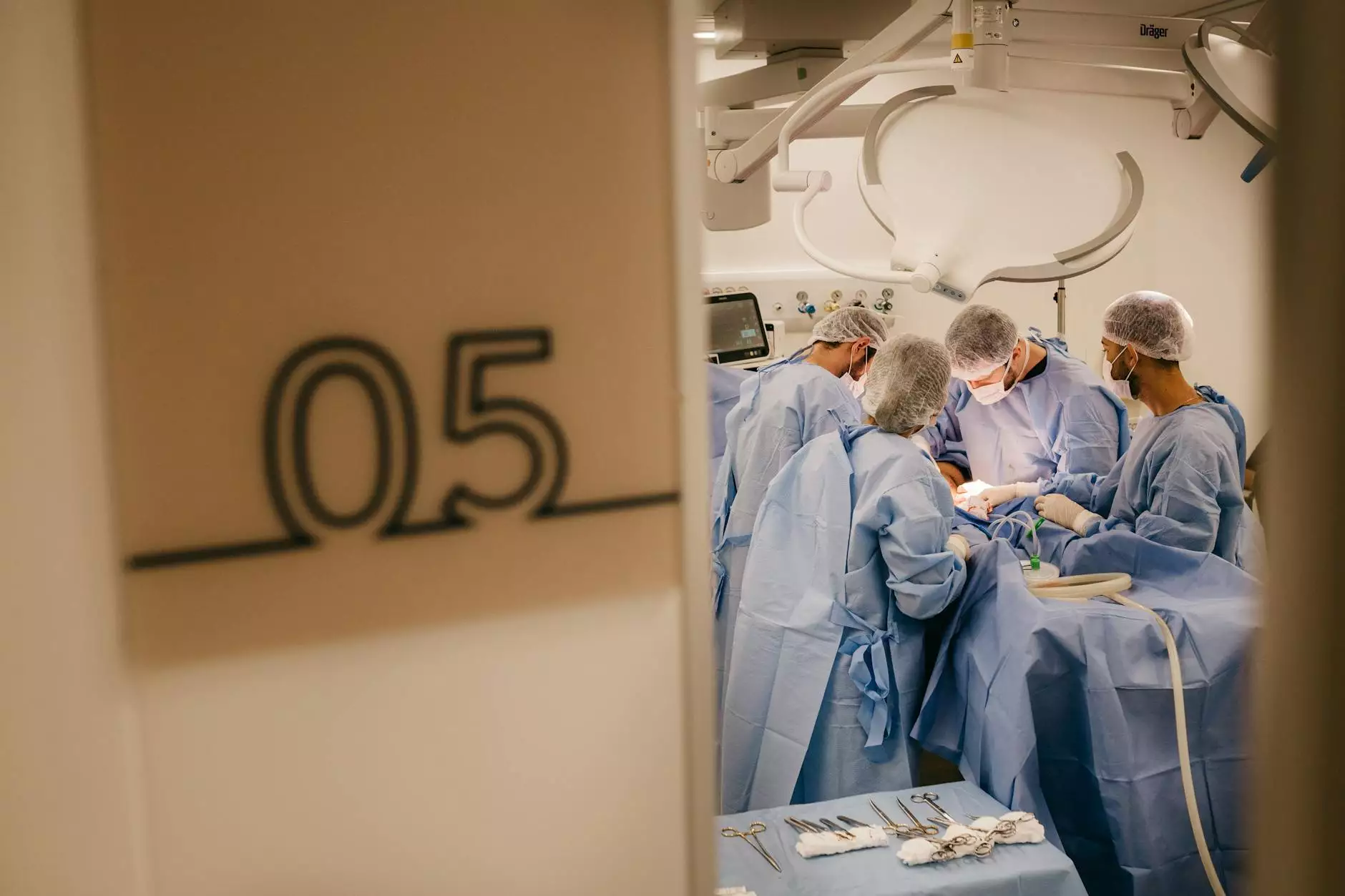The Importance of a **Pulmonary Surgeon** in Modern Medicine

In the ever-evolving landscape of healthcare, the role of a pulmonary surgeon has become increasingly vital. These specialized doctors focus on diagnosing and treating diseases of the lungs and other thoracic organs. This article aims to delve deeply into the multifaceted world of pulmonary surgery, shedding light on its significance, procedures, and the exceptional care provided by these medical professionals.
Understanding the Role of a Pulmonary Surgeon
A pulmonary surgeon is a board-certified physician who has completed extensive training in thoracic surgery, focusing primarily on conditions involving the chest and lungs. Their expertise is essential in treating complex respiratory diseases, and their contributions can often mean the difference between life and death.
Core Responsibilities
The core responsibilities of a pulmonary surgeon include:
- Diagnosis: Utilizing advanced imaging techniques and diagnostic tests to assess pulmonary conditions.
- Surgical Procedures: Performing surgeries to remove tumors, treat infections, and correct congenital anomalies.
- Post-operative Care: Monitoring patients post-surgery to ensure a successful recovery.
- Collaborative Care: Working alongside pulmonologists, oncologists, and primary care physicians to develop comprehensive treatment plans.
Common Conditions Treated by Pulmonary Surgeons
Pulmonary surgeons address a variety of critical conditions. Understanding these can help patients recognize when to seek their specialized care.
1. Lung Cancer
Lung cancer is one of the leading causes of cancer-related deaths globally. A pulmonary surgeon plays a pivotal role in the treatment of lung cancer, often performing lobectomies or pneumonectomies to remove cancerous growths. Early detection and surgical intervention can significantly enhance survival rates.
2. Chronic Obstructive Pulmonary Disease (COPD)
COPD encompasses various lung diseases, including emphysema and chronic bronchitis. While often managed through medication, severe cases may necessitate surgical procedures such as lung volume reduction surgery to improve breathing capacity.
3. Pleural Disease
Conditions affecting the pleura, such as pleural effusion or pleuritis, may require surgical involvement. A pulmonary surgeon can perform thoracentesis to drain excess fluid or perform more invasive procedures if needed.
4. Pulmonary Embolism
A pulmonary embolism occurs when a blood clot blocks a pulmonary artery, which can be life-threatening. In certain cases, a pulmonary surgeon may need to carry out an embolectomy to remove the clot.
5. Congenital Lung Disorders
Some patients are born with congenital issues involving their lungs. Surgical correction can provide significant quality of life improvements for these individuals.
Innovations in Pulmonary Surgery
The field of pulmonary surgery is continuously evolving, driven by technological advancements and newfound medical approaches. Here are some key innovations:
Robotic-Assisted Surgery
Robotic surgery has transformed the way pulmonary surgeons perform complex procedures. Utilizing robotic systems offers precision and minimizes recovery time. Patients benefit from smaller incisions and reduced post-operative discomfort.
Minimally Invasive Techniques
Minimally invasive techniques have become standard in pulmonary surgery. Approaches like video-assisted thoracoscopic surgery (VATS) enable surgeons to conduct operations through small incisions, resulting in less pain and quicker recovery times for patients.
Enhanced Recovery Protocols
Enhanced Recovery After Surgery (ERAS) protocols are being implemented to improve surgical outcomes. These protocols focus on preoperative education, optimized pain management, and early mobilization, significantly enhancing the recovery journey for patients.
The Significance of Patient-Centered Care
Pulmonary surgeons are not only surgeons; they are also compassionate healthcare providers dedicated to improving the lives of their patients. A patient-centered approach is crucial in their practice.
Building Rapport
Establishing a strong patient-surgeon relationship is essential for effective care. Pulmonary surgeons must communicate clearly, ensuring that patients understand their conditions, treatment options, and expected outcomes.
Comprehensive Treatment Plans
A pulmonary surgeon collaborates with healthcare teams to develop tailored treatment plans. Whether it includes surgical intervention, medication, or lifestyle changes, the objective is to enhance the patient’s quality of life.
Choosing the Right Pulmonary Surgeon
Finding the right pulmonary surgeon is critical for those dealing with complex lung issues. Here are several factors to consider:
- Board Certification: Ensure the surgeon is board-certified in thoracic surgery.
- Experience: Look for a surgeon with experience in treating specific lung conditions.
- Patient Reviews: Read reviews from previous patients to gauge satisfaction and outcomes.
- Hospital Affiliation: Choose a surgeon affiliated with an accredited hospital known for excellent care.
- Communication Style: Opt for a surgeon who communicates effectively and addresses your concerns.
Conclusion: The Vital Role of Pulmonary Surgeons in Healthcare
The contributions of pulmonary surgeons to the medical field cannot be overstated. They are instrumental in diagnosing and treating potentially life-threatening conditions while ensuring patient comfort and care. As technology evolves and surgical techniques improve, the future of pulmonary surgery looks promising. It's essential for patients to advocate for their health and seek the specialized care they need from qualified professionals in this field.
At neumarksurgery.com, we are dedicated to providing high-quality resources and information about pulmonary health and the vital role of pulmonary surgeons in enhancing patient outcomes. We invite you to learn more about this essential aspect of healthcare and empower yourself with knowledge about your respiratory health.









